Waiting to Vanish Read online
Page 2
Mackenzie climbed onto the couch beside him. He wrapped his arms around her.
“I love you,” he said. “Do what you have to do so we can get on with our lives. With us.”
Her mind filled with scattered images, the smell of pine and bayberry, her mother’s staccato laugh, Alexander in a dark green sweater, smiling. She shook her head to rattle the images, to shake them up, or to make them go away.
“Even I’m tired of it,” she said. “Only half living.”
She felt his breath on her neck. His tight brown curls tickled her cheek.
He said, “I love you.” His voice was a whisper. He said, “It’s all right.”
CHAPTER TWO
JASON SAT AT A rickety table in the Holiday bar drinking a draft beer.
Sometimes he and Mackenzie met there at the end of the day to decide what to do about dinner. An Indian place over on Sixth Street? Chinese delivered? Or, if it was still early enough, maybe they could get a table at The Great Jones Cafe. As he sat here alone now, Jason’s heart skipped a beat every time the door opened, as if it might be her coming in.
When he’d wait for her, he would stumble out of his apartment as if from a cave, his head fuzzy with ideas, and make his way down First Avenue. He always arrived first, like an anxious teenager on a first date. Then Mackenzie would come in, her camera bag slung over her shoulder, and she would talk about her day. Her day was like a collage, images of the city and its streets and occupants.
“I saw a man,” she’d say, “and he was singing opera in the middle of the street, stopping traffic. He wore a tuxedo and his voice was really beautiful. The sun,” and here she’d use her hands to demonstrate, “circled his head like a halo.”
She talked about her freelance work too. Book jacket photographs and pictures of the downtown art scene, in black and white, for a new magazine. But her own project was photographs of doorways. She roamed the city looking for them. She was out at dawn or in blinding rain, or to catch the light between the buildings so the shaft would shine on a particular door.
Just last month—no, only three weeks ago—they had spent a snowy morning in bed at Jason’s apartment. They drank espresso that he made from a noisy machine that spit coffee and steam at him as it brewed. They had newspapers from different cities, which they bought at a newsstand on St. Mark’s Place. Every Sunday they got the Times and the Los Angeles and San Francisco papers and then one they’d never read before. The Cleveland Plain Dealer or the Miami Tribune.
Suddenly, right at noon, as the bells on the Ukrainian church down the block rang, the sun burst out.
Mackenzie jumped up, ran to the window.
“The light,” she said. “And the snow. It’s perfect.”
He had looked up from an LA travel piece on Tahiti. “What?” he said.
In her bag she carried a small blue notebook with pages of addresses. Doorways she had seen with notes of what would make the shot perfect—a purple cast to the sky, autumn, night. She flipped through it now.
“Somewhere. Perry Street, I think. Or Barrow. There’s this doorway made of stone and the stone has flecks of gold through it. Here it is. Barrow.”
She’d looked at him and her eyes were flashing with excitement.
“Against the snow,” she said, “and with this bright light, it will look like the Piazza San Marco in Venice.”
Jason laughed.
“You’ll see,” she said.
She pulled on black tights and a loose fisherman’s sweater that hung to her knees.
“Don’t go,” he said.
He held up an untouched newspaper.
“Remember Cleveland,” he said.
“I only hope they haven’t shoveled yet. I want the snow to reflect upward.”
He watched her hands pushing upward at the air as she talked. She was, he thought, the most lovely woman he had known.
“Listen,” he said, “stay here and marry me and we’ll run off to Tahiti. What do you say?”
“I’ll bring back pastries,” she said. “Babka.”
She’d wrapped her hair in a bright blue beret and draped his long black and white scarf around her neck.
When Jason saw the picture, it was as she’d said. The tiny flecks of gold blazed in the sunlight. The snow, heaped against the door, sparkled like sugar.
“Mackenzie,” he said, studying the photograph, “you really should have a show. You have enough in this series, easily.”
She shook her head hard. “I have too much to do,” she said.
And so the photographs remained scattered through her apartment, all glorious doorways. Wrought iron cast in shadow. Peeling paint in Bermuda blue. Smudged brass ornamentation. In one, the door was slightly ajar. In the distance, a bare bulb burned. The late afternoon sun cast a sinister shadow, slashed across it.
Jason finished his beer and ordered a second.
He wanted her back. She had put everything on hold
since Alexander died. And now she had this idea that she could put all the pieces of her family back together again.
He had met her before Alexander had died. Jason had won a grant for his play The Year of Peace and Love. Part of the prize was to have it performed at a play festival at the Kennedy Center. A mutual friend had suggested he call Mackenzie while he was in Washington. Later, she told him that she had expected an overaged hippie with straggly hair and a Grateful Dead T-shirt. “I was,” she said, “pleasantly surprised.”
It was two days before she left for her trip to New Zealand. Her assignment was a photographic essay on the country’s unique natural beauty. Her apartment was littered with clothes—“It’s winter there,” she’d explained as she moved sweaters off a chair—and maps that marked waterfalls, forests, and mountains.
The thing that had struck him immediately was her energy. It radiated from her, lit her face. She had shown him the maps, explained the route she’d take through New Zealand.
“I’m renting a camper,” she said. And she’d smiled at him. “It’s a real wilderness trek.”
It was then that he noticed she was beautiful too.
Her apartment was small. Framed prints leaned against an exposed brick wall.
“I haven’t even had time to hang those,” she said. “I just got back from Indonesia.”
“A real jet setter,” he said.
But he was thinking, How will I get to know her better if she’s gone so much?
“I’m afraid so,” she said. “It’s hell on relationships.”
A cat peered down at him from the top shelf of a bookcase. Another rocked gently in a chair.
“Does that mean you’re …” he struggled for a word.
“Unattached?” she said.
He nodded.
“Very.”
He felt relieved.
They ate at a cafe called After Words that sat behind a busy bookstore.
“I have a confession,” Jason told her. “I am an old hippie.”
“Really?”
“I wake up and wonder what has happened. I mean, the younger generation has become apathetic and materialistic. They all want to make a million bucks.” He shook his head sadly.
“Whose fault is that?” Mackenzie said.
“Don’t tell me it’s ours.”
“Whose, then?”
The lights came on, bright, and they looked around, startled. The restaurant was empty.
“Politics make me crazy,” he said.
“They are too apathetic out there,” Mackenzie said. “It’s good to see someone so impassioned.”
He leaned over then and kissed her.
Their waiter sat nearby, refilling ketchup bottles.
“Just my luck,” he said. “I get the table that decides to fall in love.”
“I think that’s our cue,” Mackenzie said.
They left the restaurant and wandered for hours down the streets hidden by Connecticut Avenue, past brownstones and all-night 7-Elevens. He invited her to go with him to see his p
lay performed the next night.
After he left her at her apartment, Jason worried that he’d sounded too cynical, too pompous and self-righteous. He went over their conversation again and again. She had smiled. She had agreed with him. She had kissed him. Oh please, he thought, like me.
He knew he came on strong. His last girlfriend, Amanda, had accused him of being too intense. When he listened he frowned, or closed his eyes. He hunched over, like an old man, Amanda used to say.
“I’m terrible at parties,” he had told Mackenzie. “I can’t make small talk at all.”
“Oh, God,” she’d said, “I’m a master at it. It was something we learned as children. Always remember the person’s name to whom you’re speaking, and use it in the conversation. Avoid talking about politics and religion. And sex, of course.”
“Wait,” he’d laughed. “Should I take notes?”
Amanda had moved out to Los Angeles and he had gone with her. They had met at Yale, where he studied playwrighting and she studied acting. She became a television commercial actress. Her face was plain enough and pretty enough to fit any role—a housewife shining floors, a college student reaching out to touch someone, a daughter comparing douches with her mother.
His only play there had bombed.
“Mr. Fine,” a critic wrote, “wake up! It’s the 1980s, not 1969. Say good-bye to that burdensome decade, or at least keep it to yourself.”
“You and Los Angeles,” Amanda had told him, “are oxymoronic.”
He’d moved back to New York. Amanda’s face still filled his TV screen. She chewed Dentyne and rid her hair of dandruff. Every few months she sent him something. A crate of kiwis. “See, darling,” she’d written, “we can do anything out here. Almost.” Another time she sent him Mickey Mouse ears with his name sewn on the back. “A thinking cap?” her note had said.
Amanda had been happy as a television commercial star. She was satisfied with everything, just as it was.
“What exactly do you want?” she would ask him. “A revolution?”
“But you must want more than to sell toothpaste on TV,” he’d insist. “How about a bigger apartment? Or a starring role in a movie?”
“Well,” she’d said, reluctantly, “maybe I’d like a house or something in the mountains.” Then she’d wrinkled her nose. “But when would I go there? And how would I get there? No, that would be a waste. Never mind.”
After that first date with Mackenzie, Jason had worried all day. Had he been, again, too intense?
He remembered the way he’d raged when Reagan was reelected.
“So what, Jason?” Amanda had said.
“This country,” he had shouted, “is going down the tubes and all you’re doing is getting a suntan.”
Mackenzie, at least, had seemed interested. But then again, she’d said herself that she was a master of small talk, an expert on etiquette.
The first thing he did when he picked her up for the play was apologize.
“For what?” she said.
“I really went on last night. And on and on.”
“I liked it,” she said. And she touched the side of his face, softly.
His anxiety left him in one sudden rush.
As they started to leave, the telephone rang.
“I shouldn’t get this,” she said, “but my machine’s broken.”
He nodded, stood in the doorway as she spoke.
“I can’t talk,” she said into the telephone. “I am literally out the door.” She laughed. “I will have a good trip. Don’t run off with this Lydia before I get back. I’ll bring you something really exotic.”
“My brother,” she explained to Jason. “We’re like this.”
She held up two fingers, crossed together.
It was the last time Mackenzie spoke to Alexander.
Jason was already back in New York when she left for New Zealand via Los Angeles the next night. He sent a dozen yellow roses to her hotel in LA with a note. “I tried to match the color of your hair,” he wrote. “This was as close as I could come. A poor second.”
He was totally and completely full of her, and he had spent fifteen minutes on the telephone with the florist describing the exact tint of gold he wanted in the roses. Her hair, when he’d touched it, had seemed like that of a fairy princess.
When she called him from Los Angeles to thank him, her voice sounded small and far away.
“That’s because I am far away,” she said, laughing.
But he imagined her as a pinpoint of light, receding from him, growing smaller and fainter.
“I want postcards,” he told her. “Lots of them.”
The postcards never came.
A few hours after they spoke, she got the news about Alexander. Months later, Mackenzie told Jason that she had tried to call her Aunt Hope, to ask her to pick her up at Logan, but she couldn’t remember the number. On the plane ride east, she’d wandered into first class, where an elaborate meal was being served from carts. A flight attendant stood in the aisle, carving a Chateaubriand. Another poured wine from a crystal decanter.
“I need …” Mackenzie had said loudly.
But then she forgot what exactly it was that she needed. A bathroom? For Alexander to be home and alive when she got there? Help?
Businessmen stared up at her.
“Miss,” the flight attendant carving the roast said, “you’ll have to go back to your seat now.”
The fork pierced the meat and Mackenzie watched blood trickle out.
She realized then that she hadn’t even asked what had happened. Aunt Hope had called, had told her to hurry so she’d catch the last flight back that evening. Otherwise she’d have to wait until the next day. Alexander, Mackenzie thought, dead? This was impossible.
“Miss,” the flight attendant said again.
And then Mackenzie started to cry. To sob.
“I hadn’t cried until then,” Mackenzie told Jason.
But he learned all of this later.
When there was no word from New Zealand, he was sure he had scared her off. Perhaps, he thought, the roses were a bad idea. Or the note. He called her number in Washington and a recording told him it had been disconnected. At the magazine a receptionist said, “There’s no Mackenzie Porter on my list.”
He pictured a plane crash. He imagined the rented camper toppling over a mountainside. He thought of those waterfalls swallowing her up, her golden hair floating like some kind of magical seaweed, stuck with twigs and pebbles.
Amanda sent him a bright yellow poster with an orange peace sign on it.
“Peace is back!” she wrote. “You are a trendsetter, dear!”
He threw it away.
Finally, he rented a car and drove to Rhode Island, a state he’d never been to before, a state that as a child growing up in Chicago he’d assumed was an extension of New York. He knew it was a crazy thing to do, but it didn’t matter. When she’d called from LA he had wanted to ask her if she believed in love at almost first sight. Now he wished he had.
It was July and hot and the air conditioning in the car didn’t work. Or at least he couldn’t get it to work. He knew he should practice what to say to her parents when he got there but his mind felt like cotton. What am I doing? he thought as he passed New Haven. He still had a friend or two there. He should turn around and take that exit and stop by to see them. But he continued north, remembering her golden hair.
He thought of the play he was writing, Still Looking for Paul McCartney. Three women in New York, products of the sixties, holding on to some idealized vision of the man they wanted. “Remember,” one of them says, “watching Paul McCartney on The Ed Sullivan Show? Remember the way he made you swoon?” “He was,” the second one says, “so perfect.” “Sure,” the third woman laughs, “then we grow up and find out he was dropping acid like candy.”
He thought of the play all the way to the Porters’ front door. So that when Mrs. Porter opened it, Jason looked confused, the way he looked after he
wrote all day, as if he were a foreigner and didn’t understand the language. As if his spaceship had just landed.
“Yes?” she said.
He remembered thinking she looked weary.
He squinted at her, damned himself for not making a plan.
“Are you here to save my soul?” she said.
The house was large and white, the doorway framed in red.
“Soul …” he said.
“Jehovah’s Witness? Mormon? What?”
He shook his head, unable to grasp what she was saying.
“It certainly needs saving,” she said, as if to someone else.
“Has something happened to Mackenzie?” he blurted.
She frowned.
“Not directly,” Cal said. “Something has happened—” she paused.
He thought she might cry.
“—to all of us,” she finished softly.
And then Mackenzie was in front of him. Her skin was tanned to the color of copper, a dirty penny.
“I can’t believe this,” she said. “You found me.”
She stepped outside, around her mother, whose eyes were heavy and downcast.
The air was still.
Mackenzie wore red and white paisley boxer shorts and a loose T-shirt. He saw the outline of her breasts.
“I thought maybe you had drowned,” he said.
Seeing her here in front of him, it sounded silly. He thought of his image, her golden hair, tangled and floating.
“It’s my brother,” she said, staring past him. “Alexander.” She doubled over slightly at the name, as if it wounded her to say it.
They drove to the ocean and she spoke in a calm voice. She told him about her nephew, Sam, how he’d stopped talking, how he’d sat holding the telephone, screaming, as her brother lay on the other end. “It was lightning,” she said. “An electrical storm. The phone was a conductor. As children we weren’t allowed to take baths or answer the phone during storms. He knew better.”
They ate stuffed quahogs and clamcakes and chowder and drank a pitcher of Narragansett Beer.
In the same controlled voice, like a sleepwalker, Mackenzie had said, “No one is coping. They’re all falling apart.”
She took him for a walk along the seawall. It was beautiful. The food was salty on his tongue, the ocean stretched ahead of them like a hand.

 Kitchen Yarns
Kitchen Yarns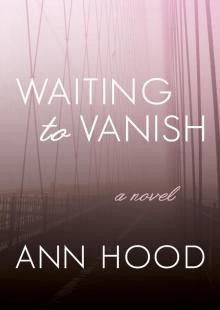 Waiting to Vanish
Waiting to Vanish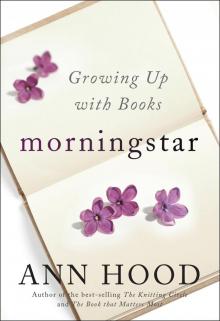 Morningstar
Morningstar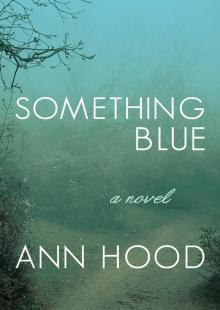 Something Blue
Something Blue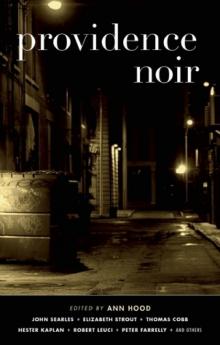 Providence Noir
Providence Noir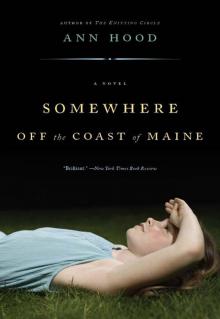 Somewhere Off the Coast of Maine
Somewhere Off the Coast of Maine Jewel of the East
Jewel of the East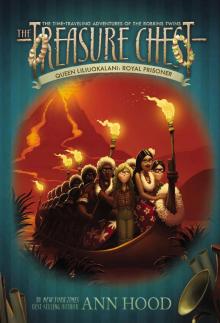 Queen Liliuokalani: Royal Prisoner
Queen Liliuokalani: Royal Prisoner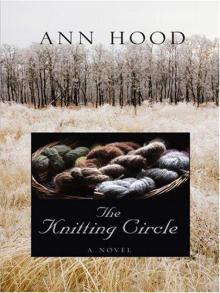 The Knitting Circle
The Knitting Circle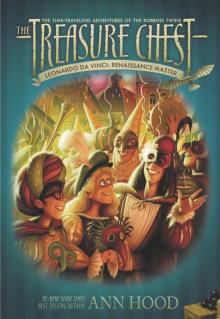 Leonardo da Vinci: Renaissance Master
Leonardo da Vinci: Renaissance Master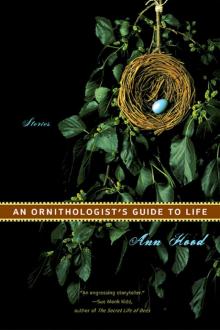 An Ornithologist's Guide to Life
An Ornithologist's Guide to Life The Red Thread
The Red Thread She Loves You (Yeah, Yeah, Yeah)
She Loves You (Yeah, Yeah, Yeah)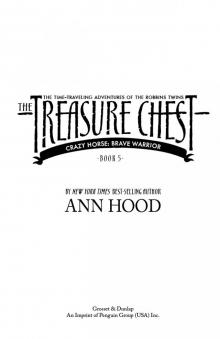 Brave Warrior
Brave Warrior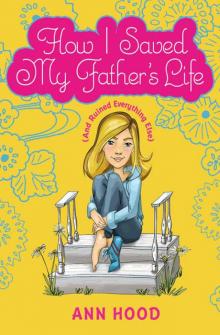 How I Saved My Father's Life (and Ruined Everything Else)
How I Saved My Father's Life (and Ruined Everything Else)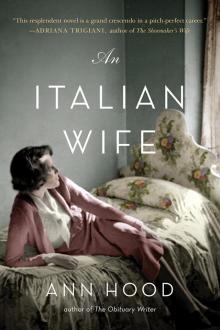 An Italian Wife
An Italian Wife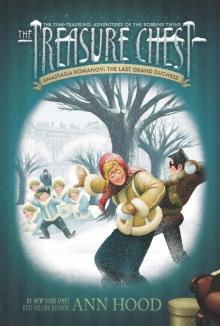 Anastasia Romanov: The Last Grand Duchess #10
Anastasia Romanov: The Last Grand Duchess #10 Prince of Air
Prince of Air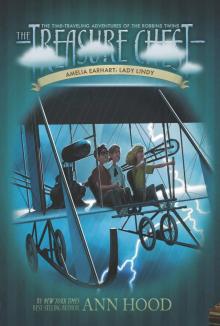 Amelia Earhart: Lady Lindy
Amelia Earhart: Lady Lindy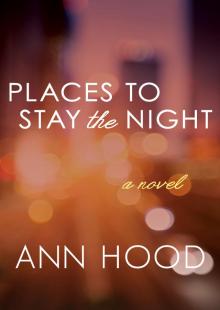 Places to Stay the Night
Places to Stay the Night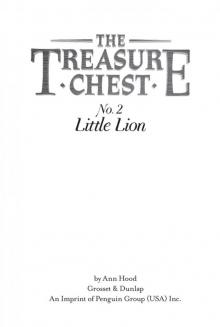 Little Lion
Little Lion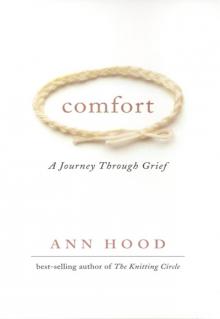 Comfort
Comfort Angel of the Battlefield
Angel of the Battlefield